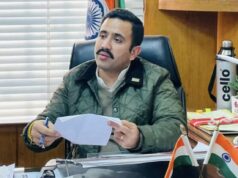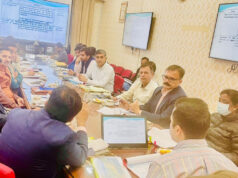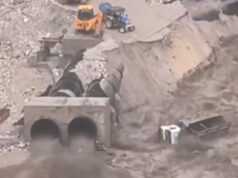Young Congress leader and Himachal Pradesh PWD Minister Vikramaditya Singh has sparked a new debate on the functioning of the Waqf Board amid growing protests over illegal mosque constructions in Shimla, Mandi, and other parts of the state. In a recent social media post, Singh emphasized the need for reforms within the Waqf Board, citing the importance of adapting laws with changing times.
In his post, the minister wrote, “The interests of Himachal and Himachaliyat are paramount, ensuring complete development across the state. It is necessary to bring changes in every law with time, and the Waqf Board also needs reform with changing times.” His comments have drawn varied reactions from the public, further intensifying the ongoing discourse around the Waqf Board and its operations.
The call for reforms comes amidst a wave of protests across the state, with growing concerns over illegal constructions linked to the Waqf Board. The protests, which initially erupted in Shimla and Mandi, have now spread to other districts, including Sirmaur. On Saturday, hundreds of protesters, under the banner of Devbhoomi Sangharsh Samiti, took to the streets in Shillai, demanding an investigation into people from outside states living within the district without proper registration. The demonstrators also raised their voices against the Waqf Board’s functioning, accusing it of operating as a land mafia and facilitating the illegal occupation of government land under the guise of religious activities.
The committee leading the protests alleged that the Waqf Board has allowed members of a particular community to illegally occupy land and construct mosques and tombs without proper authorization. “For the past two decades, a conspiracy has been hatched to change the demography of Himachal. People from other states have organized themselves and are working as a mafia,” said a representative of the Devbhoomi Sangharsh Samiti, demanding the immediate dissolution of the Waqf Board. They also called on the state administration to take swift action to remove illegal constructions and investigate how these structures were approved and the land was illegally marked in the name of the Waqf Board.
The protests have escalated into a statewide movement, with local residents in various districts taking to the streets to demand a thorough investigation into the issue. Many are questioning how the illegal construction of mosques was allowed to proceed and are calling for accountability from the authorities responsible for overseeing land use.
As the unrest continues, the government faces mounting pressure to address the concerns of the protestors and take concrete steps toward resolving the issue. Minister Vikramaditya Singh’s comments on the need for reforms within the Waqf Board have added another dimension to the ongoing debate, signalling potential changes in how the board operates in the future. The situation remains tense, with further protests likely to continue as the state grapples with the issue of illegal construction and the role of the Waqf Board.














